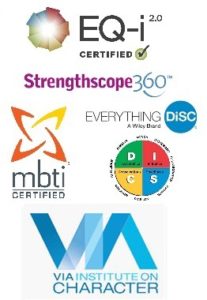Human beings are “learning animals”. We never stop learning, and indeed there are so many ways to learn, we thought it would be useful to have a list of all the more formal or arranged opportunities that we often learn things.*
Consider how you learn best and which options are easiest for your team to engage with, taking into account available time, resources, opportunities and learning styles.
learning diversity table.csv
| Learning Option | Description |
|---|---|
| Buddy system | A formal arrangement to meet with a colleague (or two) to offer regular support and feedback to each other. Useful for new team starters. Also great for returners to work after an absence. It can be optimised by keeping a Buddy diary to ensure check-ins are regular and to monitor learning opportunities. . |
| Coaching | An internal or external coach who uses coaching skills to help the person find their own solutions to challenges. Coaching is a useful way to embed skills and to build confidence, as people are finding their own solutions, with the aid of an experienced coach who can help them pre-run solutions to best effect. |
| elearning | Interactive Apps or computer learning on a range of subjects where individuals work at their own pace, at a time that is convenient to them. |
| Facilitated learning | A learning opportunity in a classroom or training setting, with a tutor/trainer. This is an experiential learning event, with the group finding conclusions and responses. |
| Knowledge share | Agreement to knowledge-share, where one colleague attends a formal training and brings back the information to share with colleagues afterwards. Training on how to knowledge-share in advance would be useful. |
| Mentoring | A mentor who has experience in a certain sector agrees to provide their time to advise, suggest or instruct a less experienced colleague within the same professional area. Role-model with experienced input. Mentoring differs from coaching, because it provides specific suggestions based on experience. Coaching is designed to get the client to discover their own solutions to problems. |
| Networking | Building up and using informal/formal links to develop knowledge and understanding. |
| Observation | Attend defined activities, meetings to develop skills and understanding from watching others in action. |
| Reading | Internet, case studies, books articles, papers. As with viewing this may be very passive - consider a knowledge-check to keep learning active |
| Research | Research into a work related topic. May be internet-based, telephone or visits. |
| Role play or simulation | Exploration of a situation with participants undertaking specific roles. Can be part of other learning options and can involve a range of participative activities to explore situations or reactions to situations. Useful for kinesthetic learning. |
| Secondment | Opportunity to learn new skills/knowledge while in a temporary role. |
| Seminar | A class (online/offline) that meets for systematic study under guidance of a tutor. More formal than facilitated learning if numbers of delegates is high. |
| Shadowing | An arrangement to be assigned to a manager or colleague for a set time (day/week/hour etc) to learn skills, attitude or their application of knowledge. |
| Temporary Promotion | Temporary promotion to cover long or short absence. |
| Viewing | Online film and video. The lack of a experiential learning element may mean this is a passive route so consider adding a knowledge test at the end. |
| Visiting | Visiting different businesses or departments, to observe other organisations or sections of own areas or departments. Visits should be pre-planned to get the most out of them. |
| Webinar/Web based learning | Short for Web-based seminar, it is a presentation, lecture, workshop or seminar that is transmitted over the Web using video conferencing software. A key feature of a Webinar is its interactive elements (the ability to give, receive and discuss information). Often, but not always, a webinar will be held live so that all participants can work together although remotely |
*Of course there are numerous other ways in which we learn that are not neccessarily formalised or arranged. For example the feedback from making errors (trial and error).


